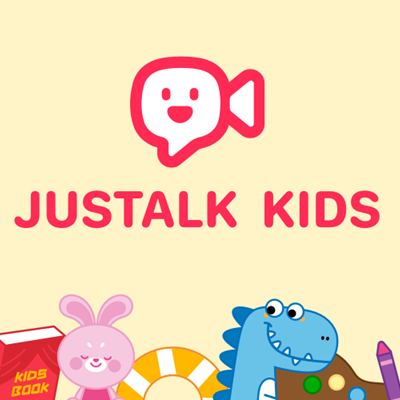You have to be more careful while choosing messaging apps for kids to ensure safer communication. Otherwise, any carelessness may cause your kid to become a victim of online predators of cyber crimes and go through emotional trauma. Don’t panic; here in this blog, we will provide you with deep insight into both the best and worst message apps for kids to help you make the right choice. So, keep reading!
Why should parents help kids choose safe messaging apps?
Gone are the days when you had to wait weeks or even months to convey your messages to another person. With the emergence of technology, you can share your feelings and thoughts with just one click. Moreover, messaging apps have opened the way for face-to-face communication via video calls and brought people closer to each other.
But everything has its dark side, too. Similarly, messaging apps are not reliable, especially for kids, because they may pose potential threats. That’s why parents need to stay connected about their kids’ online activities to ensure their safety.
- Potential risks of diverse messaging apps
Here, we will discuss the potential dangers of messaging apps in the market so you may develop an in-depth understanding and adopt different ways to ensure kids’ online safety.
– Phishing scams: Kids of all ages use mobile phones and may become victims of online scams. Scam text messages with hacked links have exploded in recent years.
– Ransomware: Also a type of scam, malware is downloaded without letting you know, which will extract your personal info. Then, the predators will send a threatening message to ask for money.
– Exposure to explicit content: Some apps may contain ads with inappropriate content, which impacts the kids badly.
– Third-party access: Some messaging apps may store user personal information and then share it with others just for advertising.
In this scenario, parents’ role is crucial as they have to guide their children in choosing safer communication software. Moreover, parents should monitor in secret what types of third-party apps their children use to protect them from online threats or scams.
Choose the best app for your kids and the most reliable tool for kids’ online safety.
The 4 worst messaging apps for kids
You need to be aware of the worst messaging apps to provide your kids with a healthy digital environment. Don’t worry – in this article, we’ll list some of the worst messaging apps, along with reasons why they are not suitable for kids. So, stay tuned!
i) Telegram
“Telegram is third-party messaging software that allows users to exchange texts, images, videos, files, and more instantly.”



The Telegram app has 700 million users globally and made communication faster. However, it has some potential risks making it an inappropriate choice for your kids. For example,
? Lack of parental controls: The Telegram app is specifically designed for adults, not for kids. That’s why parental control features are missing in this app. As a result, there is no way to monitor and protect kids from exposure to toxic messages on Telegram.
? Risks of anonymous communication: The nearby feature of Telegram allows users to contact people nearby and make friends. It’s possible that your kids could encounter an anonymous person who wants to target the young ones.
Age ratings: According to terms of service, the Telegram app is the safest choice for 16+ years old. Similarly, the app store set the age limit to 17 and above.
ii) Kik
“Kik is a freeware messaging and live streaming platform created by a Canadian company which allows its users to stay connected with their friends and family.”



Kik Messenger has 300 million worldwide registered users. However, this app is a potential centre of high-profile online cases like cyberbullying, kidnapping, harassment, etc. A felon in prison who molested a kid called this app a predator’s paradise. Its live streaming and anonymous chat feature poses potential concerns for parents about kids’ safety. For example,
? Anonymous users: This app doesn’t have an age verification factor, so anyone can download it and message your kids to trick them.
? Lack of parental controls: This app does not have a parental controls feature, so there is no way to monitor kids’ online activities.
Age ratings: Although the age rating of Kik on the App store is 17+, Kik doesn’t have an age verification process, and 70% of its users are teens, who can easily download it by using fake dates of birth.
iii) Snapchat
“Snapchat is a world-famous instant messaging app that entertains its users by allowing them to send snaps, streaks, etc., using different funny filters and connect quickly, even for a second”.



? Snapchat is not a safe platform for kids. Photos and videos on Snapchat disappear after they’ve been viewed by someone else within 24 hours, so you have no way of knowing and controlling who your kids will send private information to on Snapchat. Also, no one knows what they have received and viewed.
? Although you can’t take screenshots without others’ consent on Snapchat, different software has resolved this issue in this digital era. Thus, criminals can misuse the photos to threaten young ones.
Age ratings: The minimum age requirement to gain access to Snapchat is 13, and users must add their date of birth. However, the age verification feature is not reliable.
iv) Whatsapp
“WhatsApp is freeware software that allows users to exchange texts and media or create group chats with their loved ones.”



? Like other messaging apps, the biggest concern for parents is the exposure to inappropriate content because anyone can create an account on WhatsApp and exchange explicit content with others. Moreover, users can hack the account and ask kids’ contacts to send money.
? There are no parental controls built in, and even the 24-hour message disappearing feature makes it hard for parents to see the history.
Age ratings: According to the terms of service, the age rating on WhatsApp is 16+.
What messaging apps are safe for kids?
Parents must learn which messaging apps are safer for their kids to ensure a safer digital room. Here, we will suggest criteria to help you evaluate the safety of messaging apps. For example,
- Messaging apps must be end-to-end encrypted, ensuring your information will not be shared with a third person.
- Moreover, the app has strict account formation requirements, such as phone number or email OTP. It doesn’t compromise privacy, but it’s important to check anonymity, which is the main cause of online scams and app malware.
- There must be some parental control features which let parents watch their kid’s activity history, including text and videos, even the deleted ones.
- Furthermore, messaging apps must support Multi-Factor Authentication to confirm identity after providing at least two verification sources.
Here, we will share a list of safer messaging apps for kids, so keep reading!
i) Messenger Kids
Messenger Kids is messaging freeware owned by Facebook specially designed for kids to stay connected with family and friends.



Features:
- Online chatting, content sharing, and video calls but only with parents-approved contacts.
- Using the parent’s dashboard in the Facebook app, parents can customise the settings on the Kids Messenger app.
Age rating: for kids below 13.
Why it is right for kids:
Parents can easily manage and monitor their kids’ Messenger Kids activities. For example,
- Parents can monitor the contact lists; thus, there is no chance of talking with a stranger.
- Owing to parental control, they can manage all features, allowing kids to use the specific one.
- There are no in-app purchases and advertisements in this app, so there are no chances of exposure to explicit content.
ii) JusTalk Kids
JustTalk Kids is a free instant messaging and video/voice calling app primarily designed to provide a safer communication platform for kids.



Features:
- Kids can exchange messages and share images with parents and their approved contacts.
- Can make video/voice and use doodles and stickers for fun and entertainment during calls.
- It supports fun educational games and drawing boards to provoke creativity among kids.
Age rating: for kids 3+.
Why it is right for kids:
This app is best for your kids because your kids will not be able to receive any friend requests from anonymous persons due to parental control features. Moreover, it is encrypted, ensuring the security of your kid’s personal information.
iii) WeChat
WeChat is a Chinese-based instant messaging app and social media with a Guardian mode feature, making it a safer choice for kids.



Features:
- Recall the message or information sent within 2 minutes.
- Guardian mode feature to provide kids to protect kids from internet toxicity.
- Using this app, users can pay bills, transfer money, or pay in stores if they have a Weixin digital account.
- It allows users to send text, voice, and stickers to their contacts and make video calls, video conferencing, etc.
- Moments feature allows users to post images, short videos and then their friends may comment and like their content.
Age rating: The officially confirmed minimum age for autonomous use of the app is 13+.
Why it is right for kids:
Although it is not intended for kids, its Guardian mode provides a safer environment for kids by making the people nearby, games, and search options inaccessible to kids. The app access of little children under 13 must first obtain their parent or guardian’s agreement, and limitations are strict.
iv) Stars Messenger Kids
Stars Messenger Kids is a third-party digital software intended for kids to chat, video calls, and video chat with family and friends.



Features:
- It’s free to use and lets users make video/voice calls.
- This app doesn’t ask for users’ phone numbers to sign up.
- Users can send text and video chats with family and friends with one click.
- Kids can send emojis and stickers to chat fellows to show their feelings and emotions.
Age rating: 3+.
Why it is right for kids:
With this app, you can add a contact with a friend code (no phone number), which can be reset anytime (if it gets leaked). Moreover, this app doesn’t contain ads, eliminating the risk of becoming exposed to inappropriate content.
v) Kinzoo Messenger
Kinzoo Messenger is a third-party app that enables kids to not only communicate with family and friends but also fosters creativity among them.



Features
- Enable the exchange of text, video, and pictures with parents-approved contacts.
- Kinzoo Studio helps kids to foster creativity by playing games and animating their own videos.
Age rating: 3+.
Why it is right for kids:
Kids can only communicate with parents-approved contacts; thus, chatting with strangers is diminished, making it a safer choice for kids.
Is there an app that sends my kids’ texts to my phone?
Although phone messages are encrypted, parental control apps allow you to monitor kids’ text messages and who they are chatting with. Thus, you can be aware of their online activities. Here, we will provide you with a balanced view by mentioning both the benefits and drawbacks of using these apps;
+ Helps to prevent kids from chatting with strangers and keeping them safe from online dangers.
+ Parental control apps allow parents to restrict kids’ access to inappropriate content, which is crucial for their cognitive development.
– Parents must use these apps while considering the kid’s age. Whether they are mature or not, reading private texts will disturb their privacy and be unethical.
FlashGet Kids: Best parental control solution
“FlashGet Kids is a third-party parental control app acting as a safeguard of kids to ensure their safety from online potential dangers.”
- App blocker: Enable parents to block the apps containing inappropriate content.
- Notification tracker: Owing to its notification features, it alerts the parents when kids receive any message on their mobiles.
- Live location tracking: It enables you to track your kids’ locations and informs you when they leave a specific area.
- Live monitoring: It allows real-time monitoring of kids’ devices, enabling you to see through and listen to kids’ screens while sitting in one place.
- Keywords management: With a keyword detection feature, whenever a kids type or receive an inappropriate word like ( porn, sex, nude, fight, or any other you have added, even a name ), then a notification is sent to the parent phone.
More tips for closer family communication and bonding
Don’t rely on digital software for communication; here we are, enlisting some workable tips to help improve family communication and bonding.
- You must give time to your family for at least 10 minutes daily, during which you will communicate openly with your kids without any distractions from screen media. “Time together as a family is a gift.”
- When your kids are talking to you, you have to become a good listener, making kids feel that they are valued. Otherwise, they feel alone and find others who value them. As Bb Burg said, “Sometimes the most important thing we can do is listen.”
- If you see your child is sad, then your little sympathy, like a hug or gentle touch, lets them know that you understand them.
- It’s advisable that you never compare your kids with others because kids may lose self-esteem and may remain depressed all the time.
Final thoughts
In a nutshell, if you want to stay in touch with your child, don’t completely rely on third-party apps. In this blog, we have discussed the worst and safest messaging apps to help you make the right decision.
You can use parental control apps like FlashGet Kids to ensure the safety of kids, but choosing these apps requires age-appropriateness; otherwise, it will prove invasive of the kid’s privacy. However, you should take time for your family and actively listen to improve family communication and bonding.

